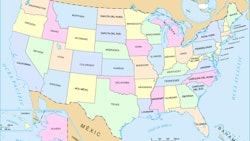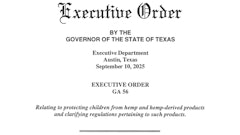Guam is in the process of getting its medical marijuana program, approved by voters in November 2014, up and running, and "Progress continues to be made in implementing rules and regulations," according to the Pacific Daily News (PDN).
PDN's report indicates that Guam officials are modeling much of the program's regulations after those in Arizona, where medical marijuana has been legal since 2010.
The Guam Election Committee certified the election results at the end of November, "marking the start of a nine-month period Public Health has to come up with rules and regulations for the medical marijuana law," according to PDN.
As the U.S. territory moves forward, with 8 more months to work on fine-tuning the program, it has received some good news: A Guam attorney who filed a federal challenge to the November election results on the medical marijuana act, has dropped his suit, according to another article in PDN.
As PDN reports:
"U.S. District Court of Guam Chief Judge Frances Tydingco-Gatewood ruled Trapp didn't have standing to bring the case, but Trapp filed a notice of appeal to United States Court of Appeals for the Ninth Circuit.Tydingco-Gatewood said Trapp failed to show his complaint is "distinguishable from the general interest of every citizen of Guam," and that the court doesn't accept general grievances about government conduct."
The lawyer, Howard Trapp, reportedly wanted to sue the Election Committee to prevent it from certifying the election results. His reason? He believes it is illegal for Guam to legalize marijuana use, according to PDN.
About Guam's Medical Marijuana Program
Named the Joaquin “KC” Concepcion II Compassionate Cannabis Use Act of 2013, Guam's medical marijuana program allows for “the beneficial use of medical cannabis in a regulated system for alleviating symptom caused by debilitating medical conditions and their medical treatments.”
The act defines debilitating medical conditions as:
- cancer
- glaucoma
- multiple sclerosis
- damage to the nervous tissue of the spinal cord with objective neurological indication of intractable spasticity
- epilepsy
- positive status for human immunodeficiency virus or acquired immune deficiency syndrome
- post-traumatic stress disorder
- rheumatoid arthritis or similar chronic autoimmune inflammatory disorders or
-Â any other medical condition, medical treatment or disease as approved by the Department."




























